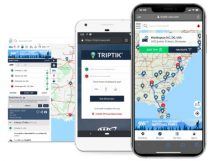Partnership funded by $750,000 grant from U.S. Embassy in Kabul
LEXINGTON, Ky. (April 23, 2014) —The University of Kentucky College of Engineering’s Department of Mining Engineering is helping Balkh University (BU) in Mazār-e Sharīf, Afghanistan build the capacity and quality of its mining engineering program.

The “U.S.-Afghan University Partnership with Balkh University in Engineering” program is funded by a $749,964 grant from the U.S. Embassy in Kabul, Afghanistan.
BU is located in the second largest city in Afghanistan, Mazār-e Sharīf, which was controlled by the Taliban from 1998 to late 2001, when it was taken with little violence by a coalition of Afghan, U.S. and allied forces. However, the city is now considered peaceful and safe for travelers.
Northern Afghanistan, where Mazār-e Sharīf is located, has a very large, though unexplored mineral base. Extracting these natural resources could have a tremendous impact on Afghanistan’s economic well-being. To help access these natural resources, Afghanistan will need a large number of engineers, particularly in resource estimation and mining.
“The goal of the project is to help the Afghanis to be as self sufficient as possible,” said Rick Honaker, chair of UK’s Department of Mining Engineering. “When the U.S. divests and reduces its military presence, Afghanis will need to generate an economy that is fruitful and strong and based on the resources that they have.”
UK will help build BU’s capacity to train mining engineers over a three-year period through new surveying, computing and deformable solids laboratories; an online engineering library; a video conferencing system; and training for BU faculty on UK’s campus.
The first BU faculty group visited UK during the Spring 2014 semester and received training to use the deformable solids laboratory equipment, attended the Society for Mining, Metallurgy & Exploration Annual Meeting in Salt Lake City and observed mining courses.
“We are training the trainers — the whole aspect of having them here is that they will train their peers on their return,” said Honaker. “They are very excited about learning to use the equipment. This allows them to see all of the theory that they have been teaching actually work in a laboratory setting.”
UK’s Department of Mining Engineering is also helping BU develop its curriculum.
BU is currently using a dated USSR geology curriculum to teach its students. To help BU develop its curriculum into a full mining engineering program UK will provide course materials, training, faculty exchanges, joint research activities and access to data.
Ahmad Sabety, a visiting BU faculty member, is looking forward to sharing what he has learned with his students in Afghanistan.
“We want to improve our students so that they can help access Afghanistan’s resources,” Sabety said. “Twenty percent of my country is mountainous with deposits such as iron, copper and petroleum — there is a lot of opportunity.”
Honaker and Jhon Silva-Castro, assistant professor in UK’s Department of Mining Engineering, recently visited BU’s campus to meet with the chancellor of BU and the dean of BU’s mining engineering program to tour their campus and discuss how the partnership could be most effective.
“BU’s dean of mining engineering is looking to change the program dramatically — to build it from the ground up,” Honaker said. ”He would love to see his program become ABET (Accreditation Board for Engineering and Technology) accredited one day, and become a leader in Afghanistan.”
The U.S. Embassy in Kabul hopes that UK and BU’s partnership will continue long after the three-year project through student and faculty exchanges and collaborative faculty research.
“Our presence in Afghanistan, not as government officials, conveys the interest of the American people in developing friendly, close relationships, not just government to government, or institution to institution, but person to person, people to people,” said Gary Gaffield, assistant provost for international partnerships. “I think there’s real value in that.”






Add Comment